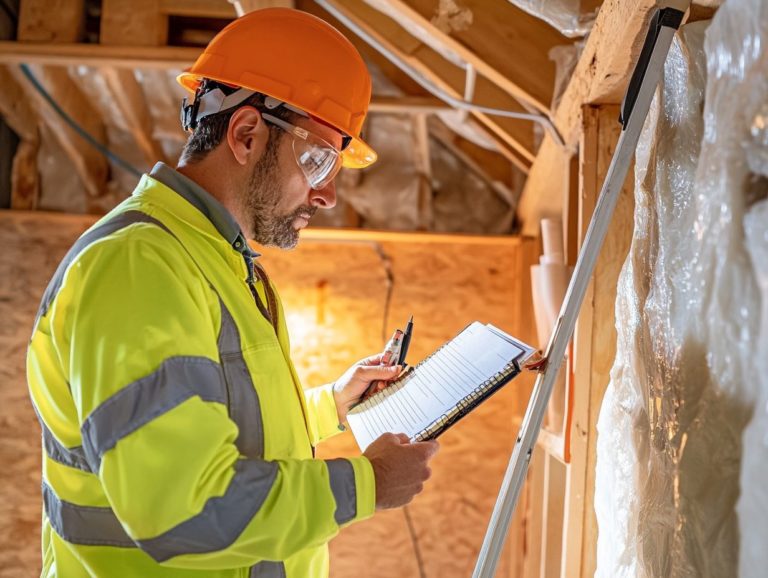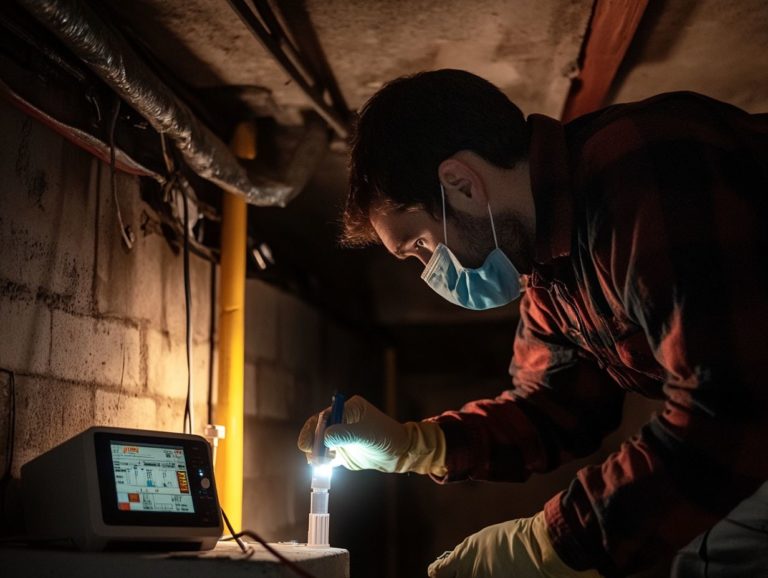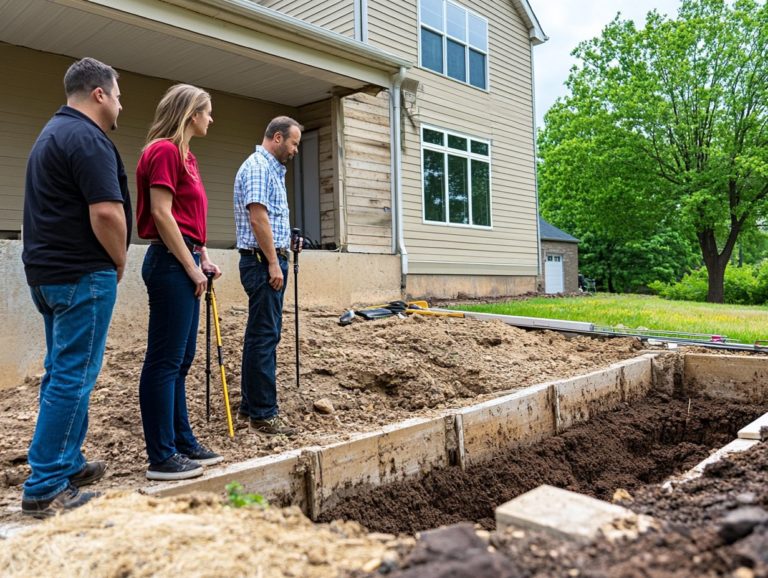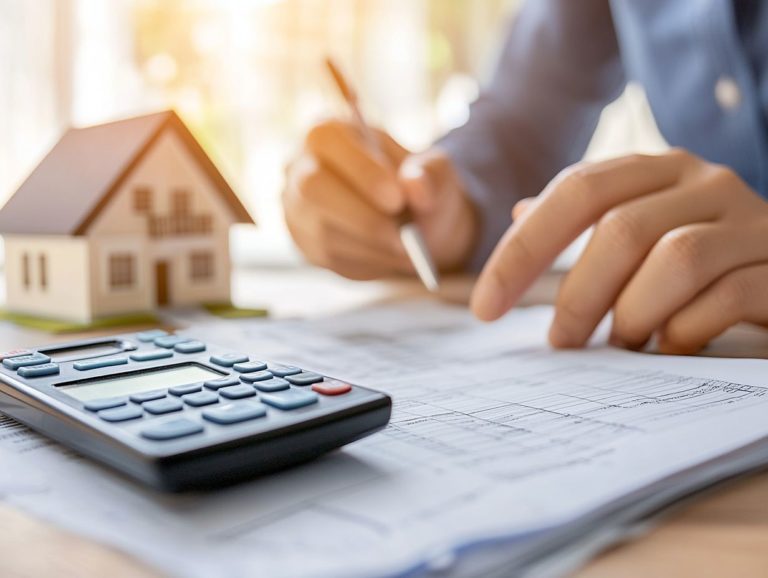How to Choose a Home Inspector with Experience
When you’re buying or selling a home, ensuring its condition is crucial. A qualified home inspector can uncover hidden issues that might slip under the radar, potentially saving you from expensive repairs later on.
This article delves into the essential role of home inspections and what sets apart a great inspector.
You ll discover the necessary qualifications and certifications, along with key questions to ask, guiding you through the process of selecting someone you can trust.
Get ready to take charge of your home-buying journey and enjoy peace of mind!
Contents
- Key Takeaways:
- Importance of Hiring a Qualified Home Inspector
- Qualifications to Look for in a Home Inspector
- Questions to Ask a Potential Home Inspector
- How to Verify a Home Inspector’s Experience
- Red Flags to Watch Out for in a Home Inspector
- Final Considerations for Choosing a Home Inspector
- Factors to Consider Beyond Experience
- Frequently Asked Questions
- What should I look for in a home inspector?
- How much experience should a home inspector have?
- What certifications should a home inspector have?
- Is it important for a home inspector to know local building codes?
- Can I attend the home inspection with the inspector?
- What should I do if I am not satisfied with the home inspector’s services?
Key Takeaways:
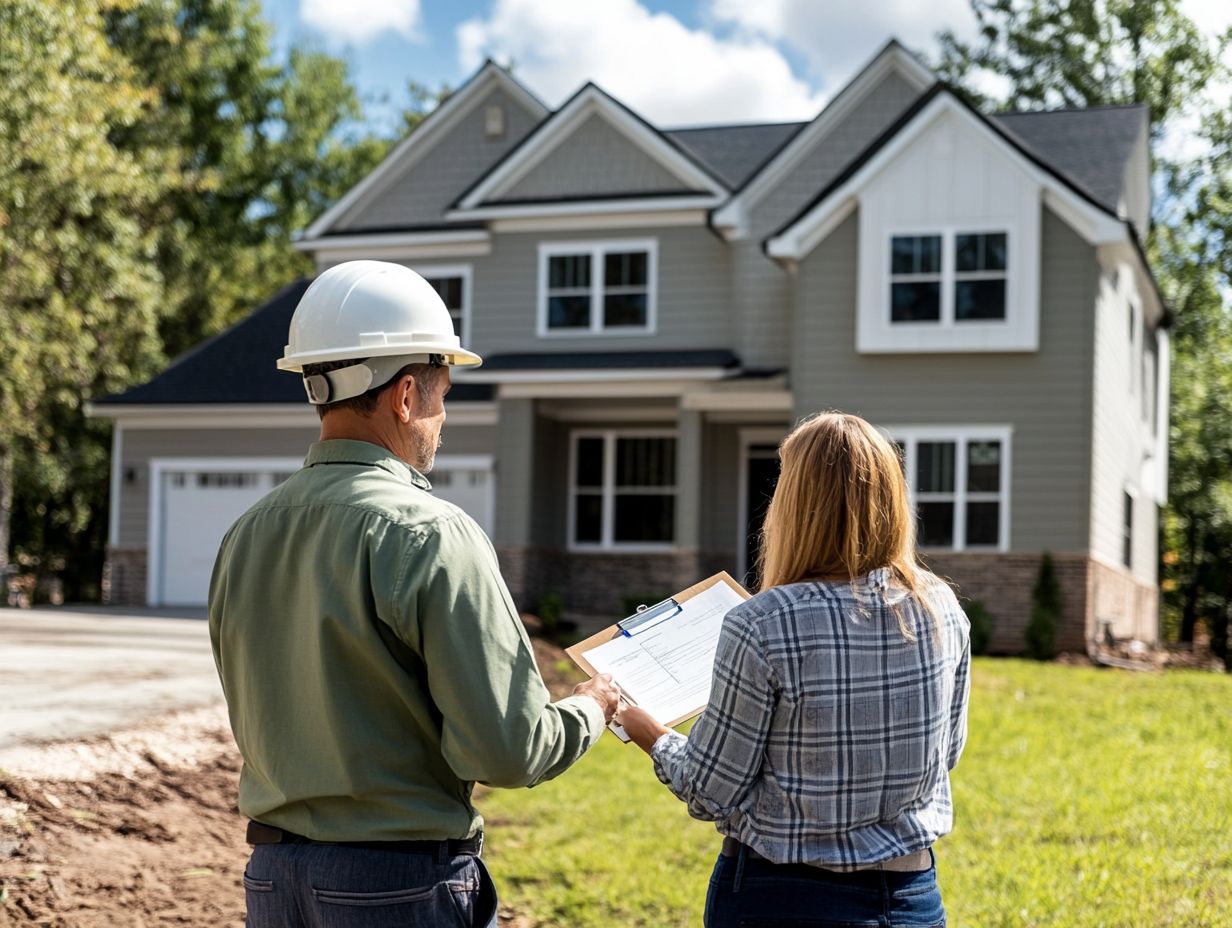
Hiring a qualified home inspector is essential for ensuring a thorough and accurate assessment of a property. When looking for a home inspector, inquire about their industry certifications, training, and experience, and ask for references. Additionally, knowing how to choose the best home inspector for your needs involves researching their credentials and reviews to verify their experience and reliability while also looking out for any red flags or warning signs.
Importance of Hiring a Qualified Home Inspector
Hiring a qualified home inspector is essential for you as a home buyer. It guarantees a detailed inspection that uncovers any structural concerns or hidden issues that could impact the property’s value.
A trustworthy inspector will deliver a detailed report, giving you the power to negotiate a lower price if needed, potentially saving you from expensive repairs in the future.
Working with certified professionals recognized by reputable industry groups elevates the quality of your home buying experience.
Why a Home Inspection is Essential
A home inspection is crucial for you as a home buyer, revealing hidden issues that could lead to costly repairs and compromise your safety.
Inspectors examine various components of the property, such as the roof, plumbing, electrical systems, and foundation. They provide a comprehensive overview of the home’s condition.
This process uncovers existing problems and highlights potential future issues, giving you the power to make informed decisions.
Understanding these aspects can significantly impact whether you choose to negotiate for repairs or ultimately decide to walk away from the deal. Discovering necessary repairs early can save you considerable time, money, and stress, making the inspection an essential step in your home-buying journey.
Qualifications to Look for in a Home Inspector
When you choose a home inspector, it’s essential to prioritize qualifications that reflect reliability. Look for certification from reputable industry trade groups, as this demonstrates a commitment to standards of excellence.
Additionally, ensure that the inspector employs advanced tools like thermal imaging cameras during inspections, as this not only enhances accuracy but also provides you with a comprehensive understanding of the property’s condition.
Industry Certifications and Training
Industry certifications and training are essential for home inspectors, with organizations like the American Society of Home Inspectors and the International Association of Certified Home Inspectors establishing rigorous standards.
These certifications highlight your proficiency in identifying issues within a property and showcase your commitment to ongoing education and staying current with industry advancements.
For home buyers, knowing that you hold such credentials brings substantial peace of mind, assuring them that their potential investment is being assessed by someone with validated expertise.
Participating in ongoing training programs, workshops, and seminars is vital for refining your skills and knowledge. This continuous learning enables you to deliver comprehensive and accurate assessments, ultimately influencing the buyer’s decision-making process significantly.
Questions to Ask a Potential Home Inspector

By asking the right questions of a potential home inspector, you can effectively assess their reliability and ensure a thorough home inspection, as outlined in our guide on how to choose the right home inspector for your property.
Ask about their inspection reports and any additional tests they recommend.
Key Inquiries for Assessing Experience
When assessing a home inspector’s experience, consider asking key questions such as how many years they’ve been in the field and for examples of past inspection reports. For more detailed guidance, check out how to choose the right home inspector for you.
Understanding the specific types of inspections they ve conducted whether residential or commercial is crucial for gauging their breadth of experience.
Inquire about any specialized training or certifications; this will provide insight into their expertise. Ask how many inspections they ve completed in the past year to understand their current engagement with the industry.
Additionally, ask how they stay updated on evolving building codes and inspection standards to gauge their commitment to maintaining quality in their work.
These factors collectively shape the trustworthiness and reliability of the inspection process.
How to Verify a Home Inspector’s Experience
To verify a home inspector s experience, take the time to research their credentials and reviews.
Utilize reputable platforms like the Better Business Bureau and Angi to gather insights into their professionalism and reliability. This thorough approach will help ensure you make an informed decision.
Researching Credentials and Reviews
Researching a home inspector’s credentials and reviews is essential for hiring a qualified professional. Understanding how to choose a home inspector can also help you utilize resources like the Better Business Bureau and Angi, which provide vital information to guide your decision.
These platforms reveal an inspector’s qualifications and offer firsthand accounts from previous clients, illuminating their experiences. Tapping into local real estate associations and seeking referrals from trusted agents can further steer you toward reputable inspectors.
Look beyond mere star ratings; diving into detailed reviews and checking for any unresolved complaints will give you a clearer picture of the inspector s reliability and expertise.
This thorough research is your best defense to safeguard your investment and ensure peace of mind throughout the home buying process.
Red Flags to Watch Out for in a Home Inspector
Recognizing red flags when hiring a home inspector is crucial. Look out for signs of inexperience or the lack of errors and omissions insurance, which protects against mistakes made during an inspection.
Being vigilant about these details can spare you from potential pitfalls as you navigate the home purchasing process.
Warning Signs of Inexperience or Unreliability

- A lack of references
- Vague inspection reports
- Absence of errors and omissions insurance
These indicators can complicate the home inspection process for you as a prospective buyer who relies heavily on the inspector’s expertise.
For example, an inspector who fails to provide clear, detailed reports might overlook crucial issues like hidden water damage or faulty wiring, leading to unexpected expenses after your purchase. Without proper insurance, you could face challenges in claiming compensation if significant defects are uncovered post-sale, potentially leaving you with financial burdens you didn’t anticipate.
Spotting these red flags early can save you from costly mistakes!
Final Considerations for Choosing a Home Inspector
When selecting a home inspector, carefully consider their experience alongside essential factors like reliability, professionalism, and how to choose a home inspector based on the overall quality of their inspection services.
Take your time to choose the right home inspector; it’s a decision that could save you hundreds or even thousands down the line! For guidance, check out this helpful resource on how to choose the best home inspector near you.
Factors to Consider Beyond Experience
When choosing a home inspector, consider more than just their experience. It’s important to evaluate their reliability, communication skills, and how to choose the best home inspector who can provide a detailed quote.
These factors are crucial for a smooth inspection process. A reliable inspector arrives on time and follows through on commitments, giving you peace of mind during a stressful time.
Strong communication skills are vital. They help the inspector explain findings clearly, allowing you to grasp potential issues without confusion.
A comprehensive quote allows you to evaluate costs upfront. This helps you avoid unexpected surprises later on.
Frequently Asked Questions
What should I look for in a home inspector?
When choosing a home inspector, consider their qualifications and certifications. It’s important to look for members of professional organizations and check reviews or ask for references. For more detailed guidance, refer to this resource on how to choose an inspector for your home.
How much experience should a home inspector have?

A home inspector should have at least 3-5 years of experience. This experience helps them understand the inspection process and recognize various issues, which is why knowing how to choose the right inspector for your home is crucial.
What certifications should a home inspector have?
A reputable inspector should have certifications from recognized organizations like InterNACHI or ASHI. These certifications show their competence in the field.
Is it important for a home inspector to know local building codes?
Yes, it s crucial for inspectors to know local building codes. This knowledge helps them identify any code violations and recommend necessary repairs.
Can I attend the home inspection with the inspector?
Yes! It’s highly recommended to attend the inspection. This gives you a chance to ask questions and understand any issues with the home.
What should I do if I am not satisfied with the home inspector’s services?
If you’re unhappy with the inspector’s work, speak up! Discuss your concerns directly with them. If necessary, contact their organization or consider a second opinion.



